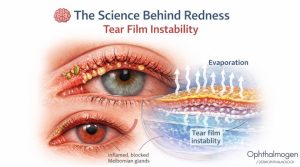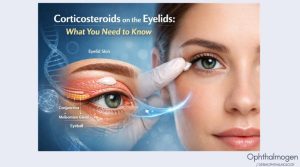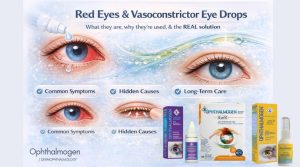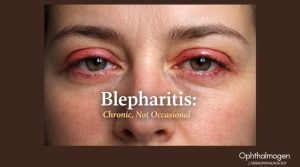
Introduction
Spring and summer bring joy, but for millions they mean eye allergies.
Itching, redness, swelling, tearing → symptoms that affect children and adults alike.
Allergic conjunctivitis is one of the most common eye conditions. Yet, it remains underestimated: most rely solely on medications, ignoring the role of daily care.
The biggest mistake? Eye rubbing. It provides temporary relief but worsens inflammation, damages the cornea, and may lead to keratoconus.
Allergy Then and Now
- 30 years ago:
- Allergies were mostly seasonal.
- Linked to pollen, dust, specific foods.
- Lasted a few weeks.
- Today:
- Allergies are year-round and multifactorial.
- Pollution, makeup, lenses, poor hygiene, and immune overload play a role.
- Many suffer symptoms throughout the year.
A shift in profile: from seasonal nuisance to chronic epidemic.
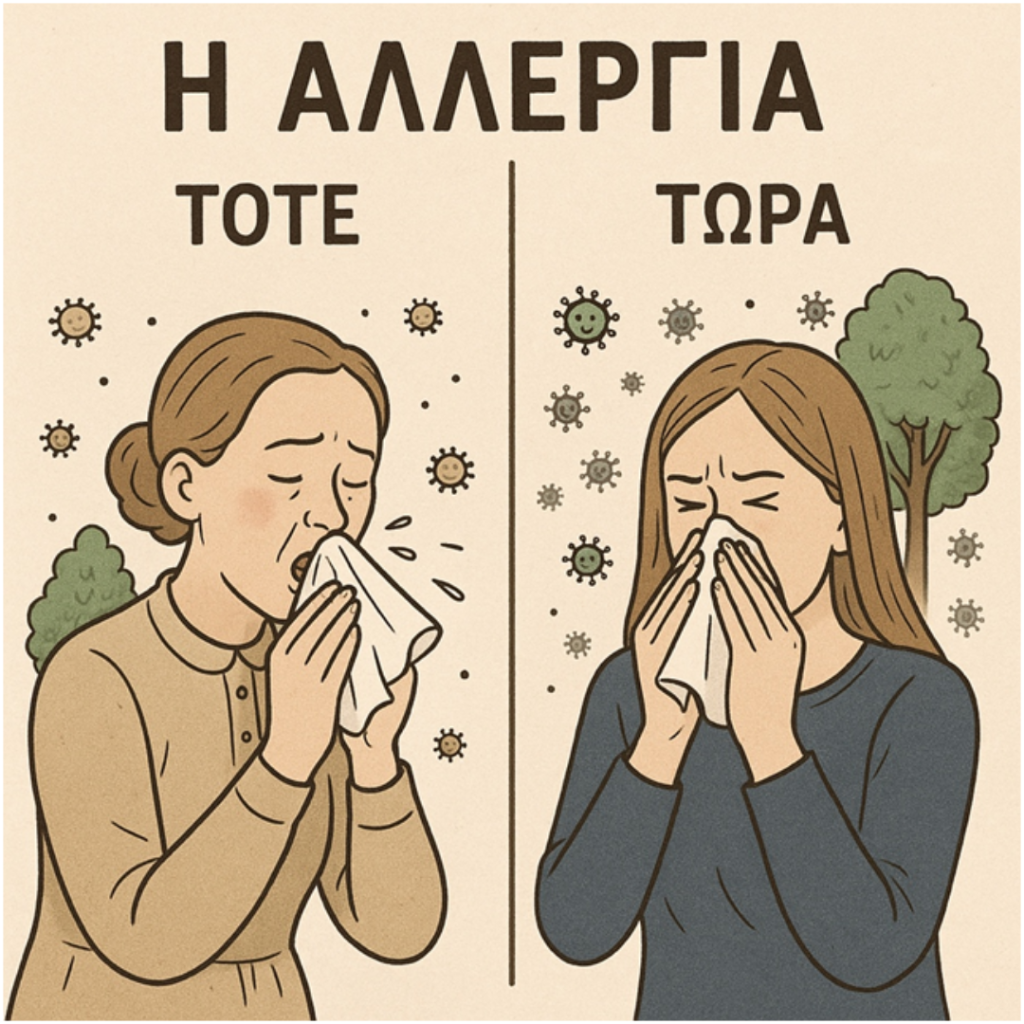
The Mechanism
Allergic inflammation triggers:
- histamine release,
- tissue swelling,
- excess tearing.
With poor hygiene:
- ΜeibomianGlands are blocked,
- Demodex proliferates,
- tear film becomes unstable.
Result: allergy becomes more intense, more resistant to drops, and more chronic.
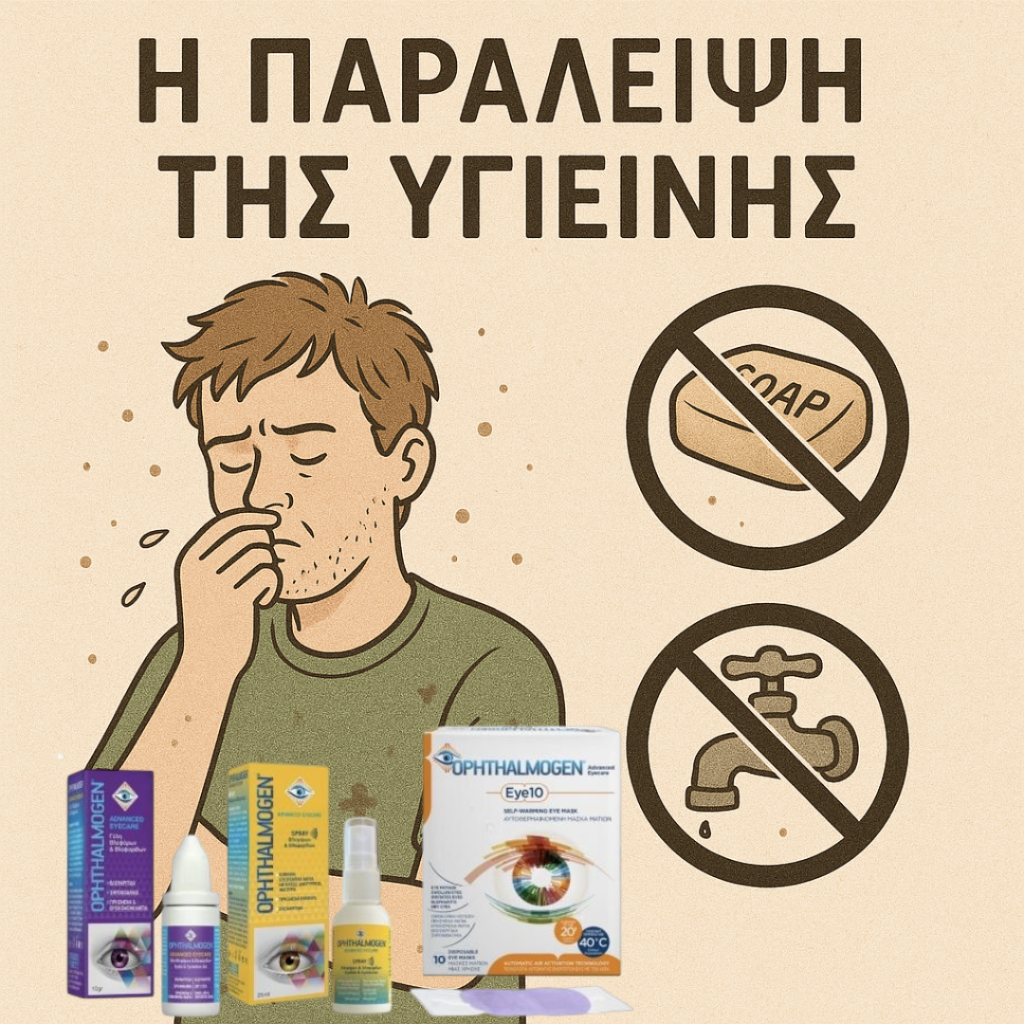
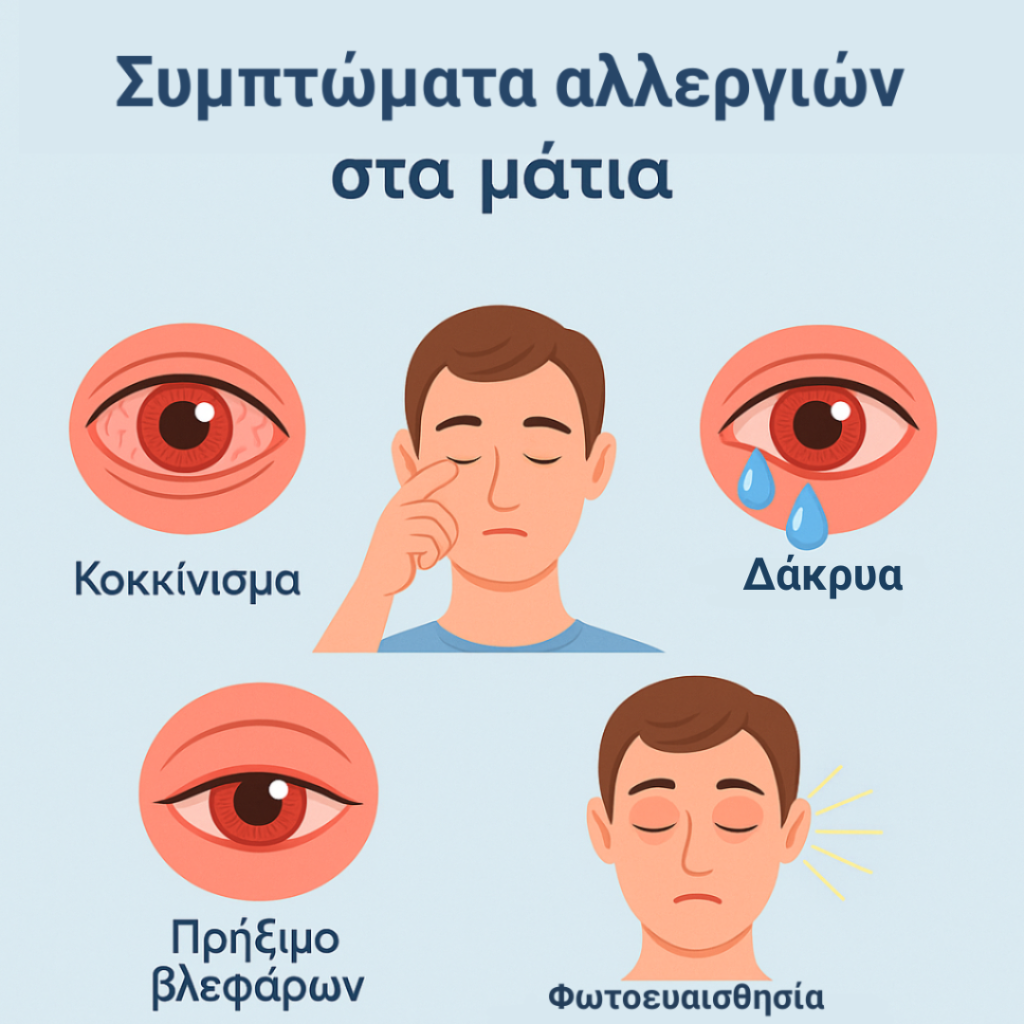
The Missing Hygiene
Most patients are prescribed only drops (antihistamines, steroids) without ever being taught that:
- eyelid cleansing reduces inflammation,
- το spray με tea tree oil ελέγχει βακτήρια & παράσιτα,
- gel massage boosts microcirculation,
- self-heating warm compresses unclog glands.
Without hygiene, the root cause remains, and medication only masks symptoms.
Overuse of Medication – The Big Mistake
Many live on steroid and antibiotic drops almost year-round.
These are life-saving in crises, but harmful in chronic use.
Overuse causes:
- resistant microbes,
- worsened dry eye,
- dependency on drops.
Like saying: “I never brush my teeth; when they rot, I take antibiotics and extract them.”
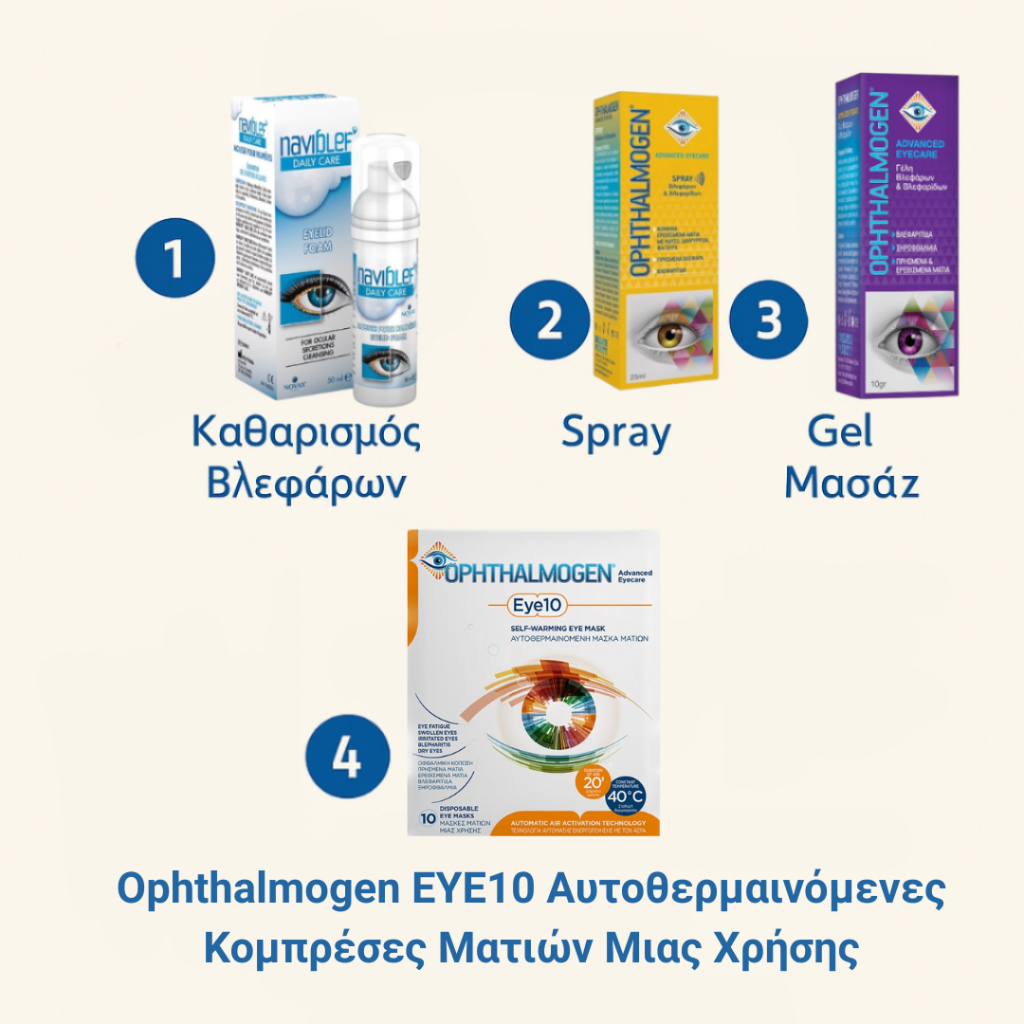
Dermophthalmology as the Solution
Dermophthalmology introduces a new perspective:
- Daily hygiene is the foundation.
- Medications are used only when necessary.
- Patients regain control, instead of dependency.
- Naviblef cleansing for pollen, allergens& debris.
- Ophthalmogen Spray for Demodex control.
- OphthalmogenGel massage for circulation & relief.
- OphthalmogenEYE10 thermotherapy for gland health.
- Omega-3 &eye vitamins for anti-inflammatory support. (Allvita Eyes)
Thus, the allergy becomes milder and more controllable.
Case Studies
Case 1 – 15-year-old Student
Relied on steroids each spring. Symptoms worsened yearly. With hygiene, required only 1/3 of medications and had mild crisis.
Case 2 – Woman with Atopic Dermatitis
Used antibiotic drops for every irritation. Developed severe dry eye. With hygiene (cleansing + thermotherapy), eyes improved without antibiotics.
Case 3 – Adult Contact Lens Wearer
Couldn’t wear lenses in spring. With gel massage & spray, returned to lens use comfortably.
Case 4 – Child with Eye Rubbing
Fatigue, poor focus at school. With daily cleaning, eyes calmed, performance improved.
FAQ
Q: Can I rely only on medications?
A: No. Medications are for crises; hygiene is for prevention.
Q: Is water enough?
A: No. Water cannot remove oil, pollen, or Demodex.
Q: Is it safe for children?
A: Yes, there are mild formulations.
Q: What if I do nothing?
A: Allergies worsen with time, risking keratoconus and chronic blepharitis.
Relationship with Medication – Collaboration, Not Conflict
Medication has a key role in allergy management:
- Antihistamine drops reduce itching and redness.
- Steroids are invaluable in severe crises, under medical supervision.
- Antibiotics are necessary in infectious complications.
Dermophthalmology does not replace medication.
It builds the foundation so that:
- they are more effective when used,
- eyes are protected from side effects of overuse.
Not “medication or hygiene.”
It is “medication when needed, always on top of proper hygiene.”
In Summary
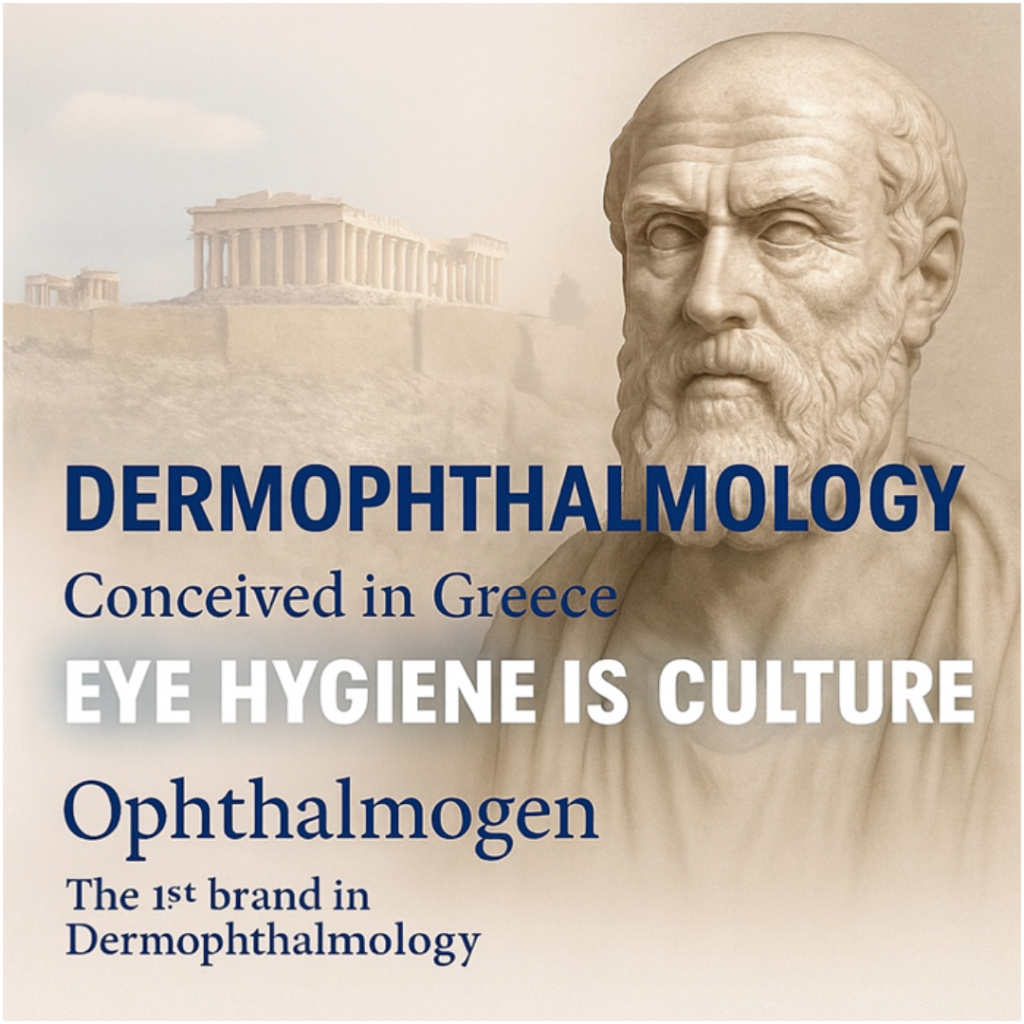
Eye allergy is neither “bad luck” nor “a curse.”
It is the eyes asking for care.
Dermophthalmology makes hygiene the hidden weapon that reduces symptoms, protects vision, and frees patients from dependency on drops.
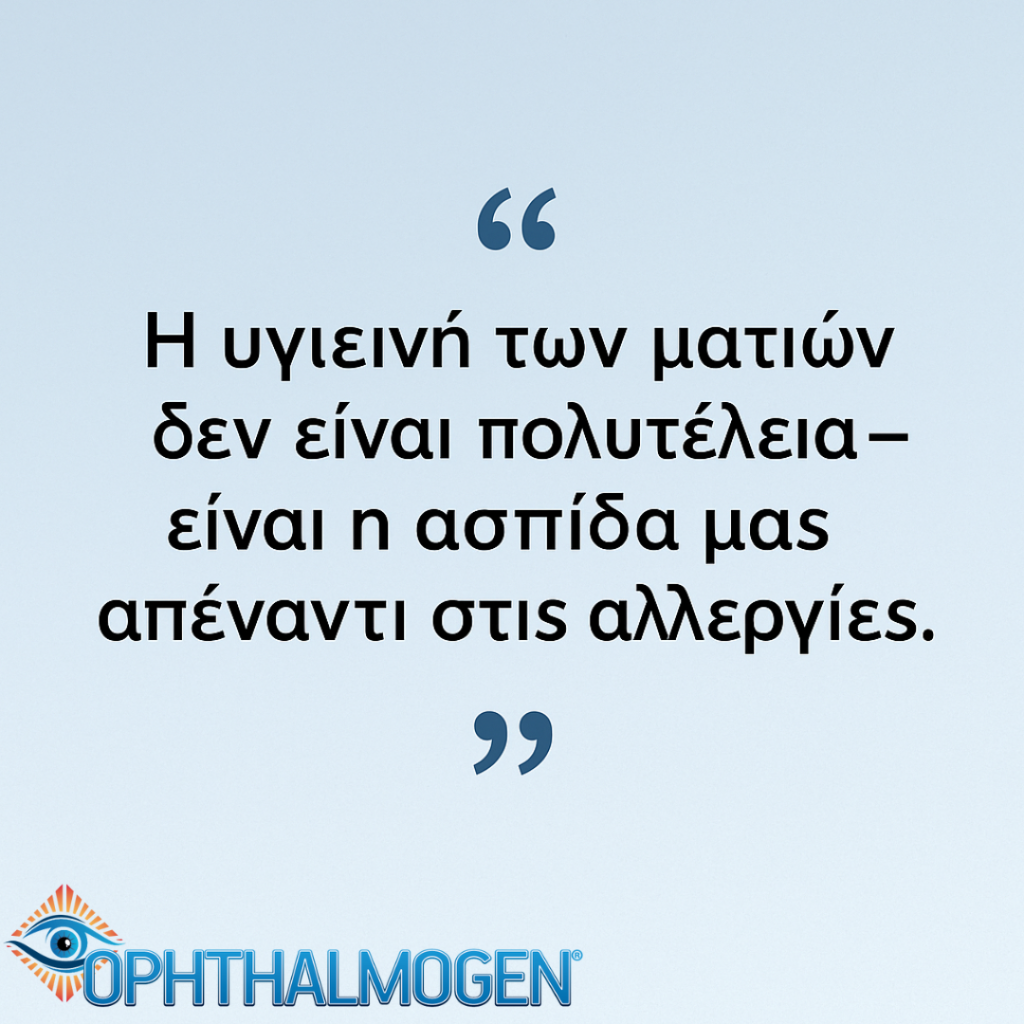
Dermophthalmology is the new medical specialty we have introduced (learn more at www.dermophthalmology.com)



